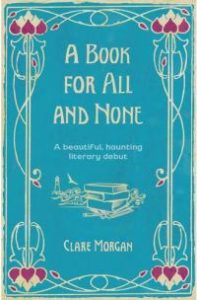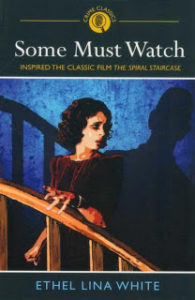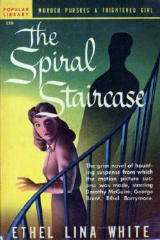 What do you make of these strands: female academic (40ish) with an interest in Virginia Woolf asks to meet male academic (60ish) with speciality in Nietzsche view to exploring possibility that Woolf was influenced by the work of Nietzsche; in 19th century, Nietzsche develops romantic interest in Lou von Salome, although she is involved with Paul Ree (ménage a trois?); Walter Cronk CEO of CronkAm is involved in shonky deals in post-invasion Iraq, has affair with obliging middle-class Julie, travels to Kuwait and Iraq where he confronts the violence of the region (Oh, and he is the husband of aforementioned female academic); Virginia Woolf goes to stay at remote sea-side cottage; male and female academic develop romance as they follow up their academic hunches …?
What do you make of these strands: female academic (40ish) with an interest in Virginia Woolf asks to meet male academic (60ish) with speciality in Nietzsche view to exploring possibility that Woolf was influenced by the work of Nietzsche; in 19th century, Nietzsche develops romantic interest in Lou von Salome, although she is involved with Paul Ree (ménage a trois?); Walter Cronk CEO of CronkAm is involved in shonky deals in post-invasion Iraq, has affair with obliging middle-class Julie, travels to Kuwait and Iraq where he confronts the violence of the region (Oh, and he is the husband of aforementioned female academic); Virginia Woolf goes to stay at remote sea-side cottage; male and female academic develop romance as they follow up their academic hunches …?
I have read reviews that say Morgan‘s novel is ‘neatly plaited together’ and that it ‘unfolds like a paper-sharp origami’ – I’d say Morgan tries to force together disparate threads that were never going to fit; the result is misshapen and terribly dissatisfying. If ever the truism ‘it is not the sum of its parts’ applied, it applies here.
And what a pity because there is some beautifully insightful writing in this novel but Morgan does not do justice to her material. If you tease out the storylines you see that there is more than one novel’s worth of material. The affair between Raymond (the male academic) and Beatrice (the female) is subtle and sad. Raymond has an interesting family background that has left him damaged and reclusive; Beatrice is a reserved woman, elevated by the rise of her husband into a world she is not interested in. However, the development of this relationship is abbreviated so the really quite nauseating relationship of Walter and Julie can be examined, and so that Walter’s pretty unbelievable exploits in Kuwait and Iraq can be played out. What on earth is torture, multi-national shenanigans, Iraqi politics etc. doing in a book about Virginia Woolf and Frederick Neitzsche? If there is a link, Morgan doesn’t make it clear, or I’m being dense.
And that brings me to the next juddering misalignment – of all the interconnections that might have been made, why force a connection of ideas between Nietzsche and Woolf? And the ridiculous thing is, that it isn’t even a literary influence that Morgan finally reveals (I won’t spoil the extremely far-fetched denouement by saying any more).
I can only conclude that these disparate topics are some pet interests that Morgan wanted to explore, so she jammed them all together (the acknowledgements say that Morgan spent a year in a friend’s ‘lovely’ villa in Cyprus to write the book – in her shoes I’d explore my pet interests too).
Quite a lot of the book is spent on portraying Nietzsche’s mental deterioration as he begins his pursuit of Lou, and the consequences of this, and this was all well done. And the relationship of Raymond and Beatrice had potential but there was too much distraction from other parts of the book to make this really work. The parts on Virginia Woolf were less developed, leaving her a wafting, insubstantial character.
Clare Morgan is a creative writing academic at Oxford and this is her first novel. I know a writing teacher who always asks his students to define ‘whose story is it?’ – I wonder if Morgan can answer that question or if she even thinks it matters.



